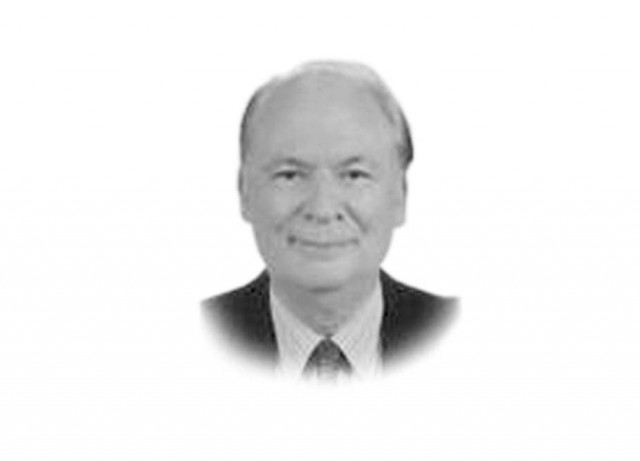Was D-8 really a turning point?
We should put our own house in order before we exhort other nations to do so.

On November 23, the people of this blighted republic were given the impression that the nation was on the cusp of monumental change and that from then on, things were going to be hunky dory. A meeting was going to be held which correspondents of different local newspapers described as “A historic Islamabad declaration”.
All that was actually happening was that the members of the D-8, established 15 years ago, got together in Islamabad on the invitation of President Asif Ali Zardari, to hold one of their meetings. The D-8 consists of a group of eight developing countries which have large Muslim populations and who collectively account for 13 per cent of the world’s population. They believe they can improve the position of the member states in the global economy, diversify and create new opportunities in trade relations, enhance participation in decision-making at the international level and improve standards of living. I did wonder why Saudi Arabia, the UAE, Qatar and Brunei are not in the group.
At the Islamabad conference, Mr Zardari in his inaugural address urged the member states to endorse, once again, the core values of the D-8. These objectives include peace, dialogue and cooperation, justice, equality, moderation, democracy, the rule of law and harmony. They also want to increase their share of the world’s trade by 15 per cent by 2018. Right. Now, here’s a bit of off-the-cuff editorialising. In Pakistan, we don’t have peace, equality, moderation, the rule of law or harmony.
Nevertheless, after considerable deliberation and pooling of intelligence, they collectively resolved a whole list of things that should be done, which had a remarkable resemblance to their mission statement and ended with a world shaking declaration that stress should be laid on energy security. Good Lord. This was some pronouncement. It’s not as if we have a hell of a lot of the stuff to start with so we can start rationing. And whatever little there is, is pretty expensive anyway.
I have never really had much time for these ‘historic’ meetings, especially the G-8 conferences of rich nations, which invariably end with resolutions to protect the environment and help the poorer nations to eradicate poverty. But one hardly ever sees evidence of any real efforts being made in this direction. It was as plain as a pikestaff that the Kyoto Protocol was not really meant for the biggest offenders — the United States and China — but for the developing countries. In the recent Islamabad conference, the two important leaders of any real significance were the Iranian and the Turkish prime ministers, harking back to the days of the Regional Cooperation Development. In fact, while all the other Muslim states rattle their sabres when they discuss the Israeli treatment of the Palestinians, the Iranians and the Turks were the only Muslims that did something about it. We should put our own house in order before we exhort other nations to do so. So far, from what I have seen, at least four of the eight states have fulfilled most of the objectives of the Group.
Published in The Express Tribune, December 2nd, 2012.















COMMENTS
Comments are moderated and generally will be posted if they are on-topic and not abusive.
For more information, please see our Comments FAQ